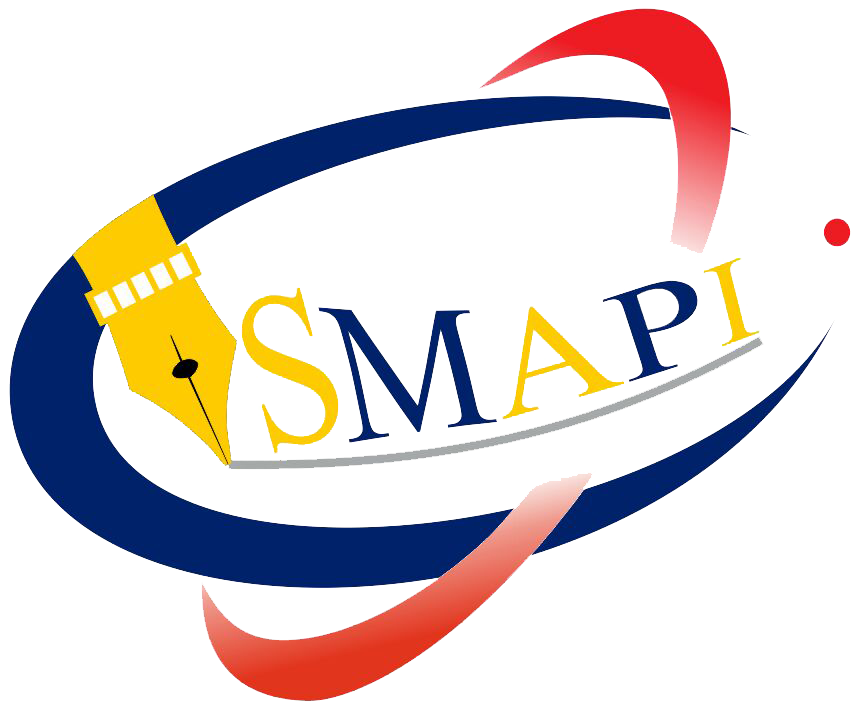EVALUATION OF TEACHING FACTORY PROGRAM IN SMK YP IPPI CAKUNG
DOI:
https://doi.org/10.22236/jkpuhamka.v3i2.6774Keywords:
Teaching Factory, industry curriculum standards, expertise, competence, vocational schoolAbstract
The purpose of this study was to examine the implementation of a teaching factory, and the factors that inhibit its implementation at SMK YP IPPI Cakung. The results of the study noted that the implementation of the teaching factory begins with the establishment of a management structure and collaboration with industry and the related education office. The competency standard used is an application of the school curriculum that is Indonesian National Work Competency Standards (SKKNI) or industry curriculum standard involving students who master vocational competencies and have interests or talents. Thus, the learning media in the form of products have been adjusted to competence. The instructors involved in teaching factory are those who have academic qualifications, experience in industry, and commitment. The products are marketed to consumers and then an evaluation of the implementation of teaching factories are conducted by schools and companies. The inhibiting factors in this program are related to human resources, namely teachers and students. There is still lack of teachers for the department of Computer and Network Engineering but they have fulfilled academic qualifications according to their competencies. In terms of student issues, students' lack of interest and funding are the obstacle. For supporting factors of teaching factory, it includes superior products, which raw materials are easily obtained, and work strategies that can be adapted to conditions. In addition, supporting facilities, good infrastructure, good marketing, and sufficient location are some good things to carry out the production.
Downloads
References
Alptekin, S. E., Pouraghabagher, R., McQuaid, P., & Waldorf, D. (2001). Teaching factory. ASEE Annual Conference Proceedings.
Amar, AF., Hidayat, D, & Suherman, A. (2015). Penerapan model pembelajaran teaching factory 6 langkah (Model TF-6M) untuk meningkatkan motivasi berprestasi siswa di SMK. Journal of Mechanical Engineering Education, Vol. 2, No. 2, Pp. 189-198
Bilge, P., & Severengiz, M. (2019). Analysis of industrial engineering qualification for the job market. Procedia Manufacturing. https://doi.org/10.1016/j.promfg.2019.04.091
Chryssolouris, G., Mavrikios, D., & Rentzos, L. (2016). The Teaching Factory: A Manufacturing Education Paradigm. Procedia CIRP, 57, 44–48. https://doi.org/10.1016/j.procir.2016.11.009
Chryssolouris, George, Mavrikios, D., & Mourtzis, D. (2013). Manufacturing systems: Skills & competencies for the future. Procedia CIRP. https://doi.org/10.1016/j.procir.2013.05.004
Damarjati, T. (2016). Teaching factory. Directorate of Vocational High school, the Ministry
of Education and Culture. Retrieved from https://psmk.kemdikbud.go.id/konten/1870/teaching-factory.
Fajaryati, N. (2013). Evaluasi pelaksanaan teaching factory SMK di Surakarta. Jurnal Pendidikan Vokasi. https://doi.org/10.21831/jpv.v2i3.1040
Faller, C., & Feldmúller, D. (2015). Industry 4.0 learning factory for regional SMEs. Procedia CIRP. https://doi.org/10.1016/j.procir.2015.02.117
Fitriani, S. (2019). Manajemen pendidikan vokasi dalam era disrupsi: menghubungkan bisnis dan industri dalam model pembelajaran berbasis inovasi. In A. Rahmat, Sriharini, M. Mirnawati, & C. CW (Eds.), Manajemen perubahan era disruption (pp. 397–411). Gorontalo: Ideaspublishing.
Garcia, A., Cantrill, C., Filipiak, D., Hunt, B., Lee, C., Mirra, N., & Peppler, K. (2014). Teaching in the Connected Learning Classroom. In Digital Media + Learning Research Hub.
Hasanah, H., & Purnamawati, P. (2017). Kesiapan unit produksi dalam pelaksanaan pembelajaran kewirausahaan berbasis teaching factory di sekolah menengah kejuruan Kota Makassar. Seminar Nasional Lembaga Penelitian UNM, 2017.
Martawijaya, D.H. (2012). Developing a teaching factory learning model to improve production competencies among mechanical Engineering students in a vocational senior high school. Journal of Technical Education and Training, vol. 4, No.2.
Mavrikios, D., Georgoulias, K., & Chryssolouris, G. (2018). The Teaching factory paradigm: developments and outlook. Procedia Manufacturing. https://doi.org/10.1016/j.promfg.2018.04.029
Mourtzis, D., Vlachou, E., Dimitrakopoulos, G., & Zogopoulos, V. (2018). Cyber- Physical Systems and Education 4.0 -The Teaching Factory 4.0 Concept. Procedia Manufacturing. https://doi.org/10.1016/j.promfg.2018.04.005
Mustari, M., Sudana, I. M., & Supraptono, E. (2017). Model teaching factory bagi pembelajaran merencana dan menginstalasi sistem audio. Journal of Vocational and Career Education. https://doi.org/10.15294/jvce.v2i2.13878
Noto Widodo, Pardjono, W. (2013). Pengembangan model pembelajaran soft skills dan hard skills untuk siswa SMK. Jurnal Cakrawala Pendidikan. https://doi.org/10.21831/cp.v0i3.1139
Pembina SMK, D. (2015). Program Teaching Factory SMK. Direktorat Pembina SMK.
Perdana, N. S. (2018). Evaluasi pelaksanaan pembelajaran model teaching factory dalam upaya peningkatan mutu lulusan. Jurnal Serunai Administrasi Pendidikan, 7, 1–57. https://doi.org/10.37755/jsap.v7i1.116
Putra, RC., Kusumah, IH., Komaro, M., Rahayu, Y., Asfiyanur, EP. (2018). Design learning of teaching factory in mechanical engineering. IOP Conf. Series: Materials Science and Engineering 306 /012104 doi:10.1088/1757899X/306/1/012104
Rizky, D. A. F., Marji, & Tuwaso. (2018). Pengaruh dukungan industri terhadap keberhasilan siswa melaksanakan teaching factory. Jurnal Pendidikan.
Siswanto, I. (2011). pelaksanaan teaching factory untuk meningkatkan kompetensi dan jiwa kewirausahaan siswa sekolah menengah kejuruan. Seminar Nasional 2011 "Wonderful Indonesia.”
Teng, S. G., Schreiner, S., & Nelson, J. B. (2001). Teaching in the Factory. Industry and Higher Education. https://doi.org/10.5367/000000001101295894
Wibowo, N. (2016). Upaya memperkecil kesenjangan kompetensi lulusan sekolah menengah kejuruan dengan tuntutan dunia industri. Jurnal Pendidikan Teknologi Dan Kejuruan. https://doi.org/10.21831/jptk.v23i1.9354
Yunanto, D. (2016). Implementasi teaching factory di SMKN 2 Gedangsari Gunungkidul. Vidya Karya, 31. https://doi.org/10.20527/jvk.v31i1.3971















